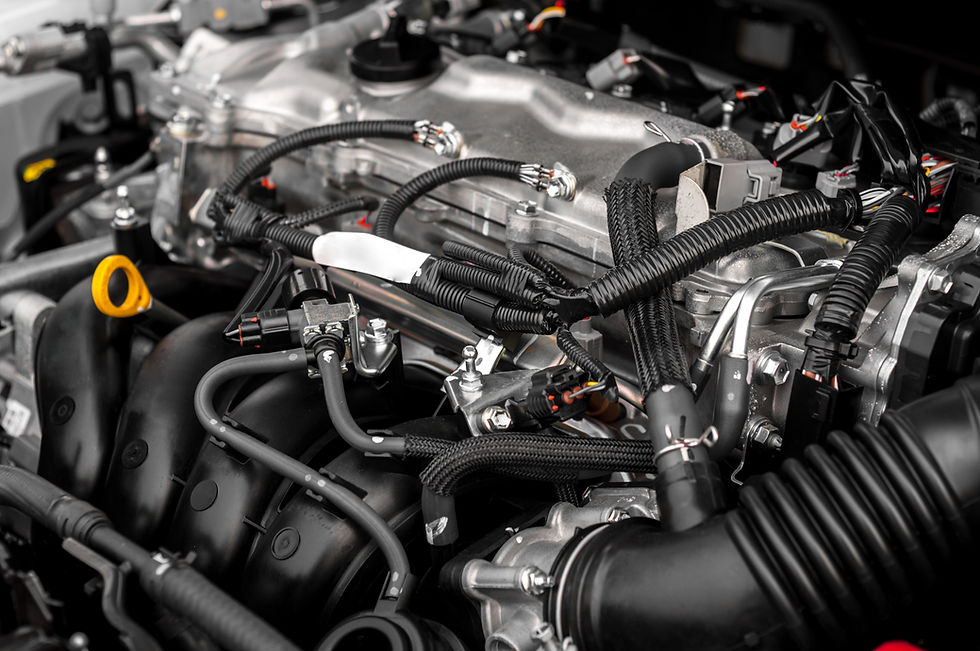While EVs Are Considered “GREEN,” Is the Manufacturing of Batteries for EVs an Environmental Problem?
- Admin
- Apr 14
- 3 min read

Electric vehicles (EVs) have been hailed as a crucial step toward reducing carbon emissions and fighting climate change. With growing concerns over the environmental impact of traditional gasoline-powered vehicles, EVs are seen as the future of transportation—cleaner, greener, and more sustainable. However, as the world shifts toward electric mobility, there’s an ongoing debate about the true environmental cost of EVs, particularly when it comes to the manufacturing of their batteries.
Batteries are at the heart of every electric vehicle, and the materials used to produce them—such as lithium, cobalt, and nickel—are crucial to the performance and efficiency of these vehicles. However, the extraction and processing of these raw materials have raised concerns about their environmental and ethical impact. Mining for lithium, cobalt, and other key minerals can cause significant environmental harm, including deforestation, water contamination, and pollution.
What it takes to make a Battery
The extraction process for lithium, a key component in most EV batteries, is particularly concerning. Lithium is often mined from salt flats in arid regions like the Atacama Desert in Chile, where large quantities of water are used to extract the mineral. This process has been linked to water scarcity, damaging local ecosystems, and negatively affecting nearby communities that rely on the same water sources for agriculture and drinking. While lithium is often touted as a more environmentally friendly alternative to fossil fuels, its extraction process raises important questions about the overall sustainability of EV battery production.
Cobalt, another essential material used in many lithium-ion batteries, presents a further environmental and ethical challenge. Most of the world’s cobalt supply comes from the Democratic Republic of the Congo (DRC), where mining practices are often unregulated, leading to severe environmental degradation and human rights abuses. The mining of cobalt has been associated with toxic emissions, habitat destruction, and the exploitation of workers, many of whom are children working in dangerous conditions.
As the demand for EV batteries continues to rise, concerns over the ethical sourcing of cobalt have intensified, prompting calls for more sustainable and transparent supply chains in the industry.
Nickel, which is used in the production of batteries for higher-performance EVs, also comes with environmental risks. The process of mining nickel requires large amounts of energy and water, and the mining itself can cause deforestation and soil erosion. In addition, the refining of nickel often results in harmful emissions and the creation of toxic waste, which can contribute to air and water pollution if not properly managed.
Despite these challenges, advancements in battery technology and recycling processes are emerging as potential solutions to mitigate the environmental impact of EV battery manufacturing. Researchers are exploring alternative materials for batteries, such as sodium-ion and solid-state batteries, which may be more sustainable and less reliant on harmful materials like cobalt and nickel. Moreover, improvements in battery recycling could help reduce the demand for newly mined materials by reusing valuable metals and components from used batteries.
Recycling is a Key
Battery recycling is an area that has gained significant attention from both automakers and environmentalists. The goal is to create a circular economy for EV batteries, where materials can be reused and repurposed, reducing the need for new mining and minimizing waste. Companies are investing in recycling technologies that could make EV batteries more sustainable over their entire lifecycle.
While EVs themselves are indeed “green” in terms of their operation—producing zero tailpipe emissions during use—the environmental cost of their manufacturing process cannot be ignored. As the global demand for electric vehicles grows, it is crucial for the industry to address the challenges associated with battery production and ensure that sustainable practices are integrated into every stage of the supply chain. The push for green technology must be accompanied by efforts to reduce the environmental and ethical impact of sourcing the materials that power these vehicles.
About Us
Charged UP! is one of the most widely read publications in the EV charging space. Our approach is to take topics that are of interest to everyone and mention companies that provide best in class approaches. To discuss including your products or services, contact us at info@chargeduppro.com
At Charged Up!, we are committed to keeping businesses and individuals informed about the evolving EV landscape. For more updates and insights, subscribe to our newsletter at chargeduppro.com/subscribe.





Comments